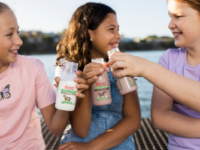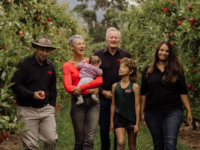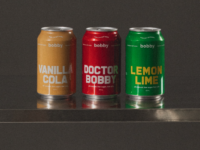 The Greens want to impose a 20 per cent tax on soft drinks and fruit juices in a bid to address growing childhood obesity.
The Greens want to impose a 20 per cent tax on soft drinks and fruit juices in a bid to address growing childhood obesity.
The proposal has been welcomed by doctors but rejected outright by the Turnbull government.
Greens leader Richard Di Natale said with one in three children classified as obese, life expectancy for the next generation will go backwards.
“We know from the evidence overseas that if we put a small tax on sugary sweetened drinks, a major contributor to obesity and ischemic heart disease, we will reduce the incidence of both of these things,” he said.
Sugary drink taxes have been introduced in several countries including the UK and France.
Academic research quoted by the Greens shows a 20 per cent sugary drink tax would save 1600 lives and the health system up to $609 million over twenty years. A recent study found 30 per cent of added sugar consumed by Australians comes from sugary drinks, and modelling suggests a tax would reduce this by 12 per cent.
Doctors have welcomed the proposal as a step in the right direction and are cautiously supportive of the idea.
The Australasian Association of Convenience Stores (AACS), however, said that the added tax would mean consumers will pay more and small businesses will lose out even further to the major supermarket chains.
AACS said “an educational – not emotional – approach is the only way to achieve better health outcomes”.
“The Greens’ suggestion is not only lazy, it highlights a lack of economic credibility and a lack of understanding of consumer behaviour to view taxation as a blanket solution to issues like obesity,” AACS CEO Jeff Rogut said.
“There is no rational basis to believe increasing taxes on certain products will result in improved health outcomes,” Rogut said.
“Tobacco is a prime example. As the government continues to raise excise on legal tobacco, more and more consumers are simply switching to cheaper alternatives and the illegal tobacco market continues to flourish, fuelling alarming health and safety consequences for the broader community.”
Rogut called on governments not to shirk their responsibility to invest in the necessary resources to inform and educate consumers on issues relating to societal health.
“Better health outcomes are not achieved by taxing certain consumers and placing additional burdens on small businesses. The only available evidence suggests that education, potentially in the form of wellness and awareness programs, is the most effective way to achieve improved health outcomes,” Rogut said.
“Many market leaders, including beverage producers, are already investing in healthier alternatives. The demand from consumers for healthier products encourages a natural market response, and supporting these endeavours makes much more sense than the uninspired, flawed response of simply raising taxes.”
Rogut pointed to the example of Denmark, where the Danish government announced the scrapping of the fat tax it introduced just 12 months prior and cancelled plans for a sugar tax, following the disastrous failure of the policy.
According to the Danish tax ministry, increased prices for consumers and increased administrative costs created a bureaucratic nightmare for producers and retailers, and put Danish jobs at risk. All the while, Danes simply travelled across the border to make their purchases.
Rogut said that if introducing a tax on soft drinks is to be pursued, logic suggests it would have to encompass all sweetened drinks such as flavoured milk, iced teas, fruit smoothies and otherwise healthy juices.
“The economic ramifications for manufacturers, suppliers and retailers would be immense, yet the potential for such measures to achieve improved health outcomes is unknown,” Rogut said.














